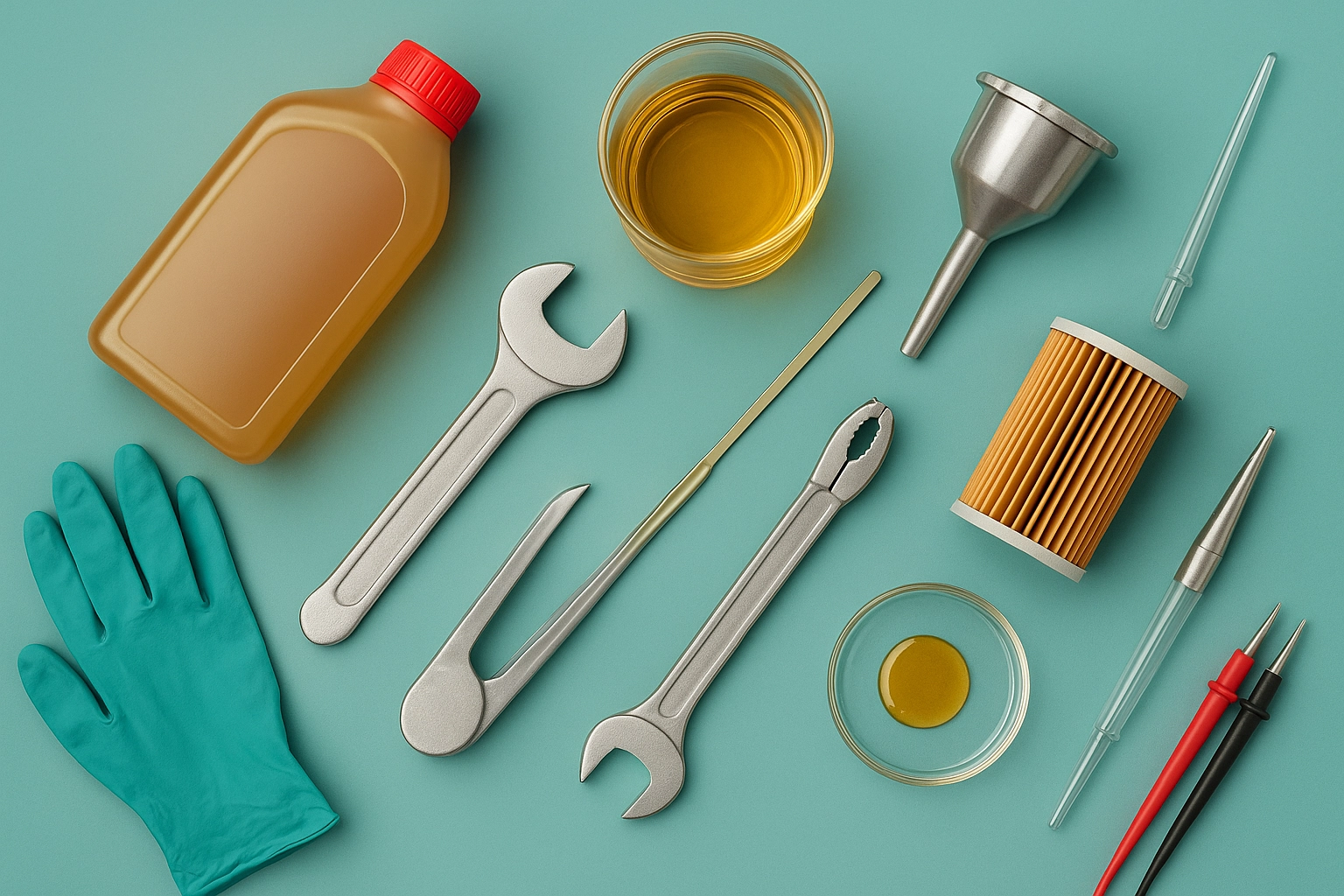ASTM D7320 Diesel Injector Fouling Testing
The ASTM D7320 diesel injector fouling test is a critical procedure used to evaluate the potential for fuel contamination and subsequent coking within diesel injectors. This test simulates real-world operating conditions to ensure that fuels meet the stringent requirements set forth by the American Society for Testing and Materials (ASTM). The primary objective of this test is to determine whether the fuel can cause injector fouling, which can lead to reduced engine performance and increased maintenance costs.
Injector fouling occurs when deposits form inside the diesel injector nozzles. These deposits are primarily composed of carbonaceous materials that accumulate over time due to incomplete combustion or other factors such as lubricating oil dilution in fuel. The test involves exposing a diesel injector nozzle to a controlled environment where it is subjected to repeated cycles of injection and cleaning. During these cycles, the amount of fouling is quantified by measuring changes in the injector’s spray pattern.
The ASTM D7320 procedure specifies detailed steps for preparing the fuel sample, setting up the testing apparatus, and interpreting results. It requires the use of a specialized test rig that simulates typical engine operating conditions. The rig typically includes a high-pressure pump, a heated chamber, and sensors to monitor temperature and pressure.
The process begins with selecting a suitable diesel injector nozzle according to ASTM D7320 guidelines. The nozzle is then mounted in the test rig and subjected to repeated cycles of injection and cleaning. Each cycle consists of injecting fuel into a controlled environment where the temperature and pressure are carefully regulated. After each cycle, the nozzle is cleaned, and its spray pattern is measured using sophisticated optical sensors.
The primary measurement used to assess fouling is the change in spray angle or pattern. A significant reduction in this parameter indicates that deposits have formed on the nozzle, leading to potential injector fouling. The test also measures other parameters such as fuel pressure drop across the nozzle and the amount of carbonaceous material collected during cleaning.
ASTM D7320 provides acceptance criteria based on these measurements. Typically, a specified percentage change in spray angle or pattern is used as an indicator of whether the fuel meets the required standards for injector fouling resistance. Compliance with ASTM D7320 ensures that fuels meet the necessary quality and reliability requirements, enhancing engine performance and longevity.
For manufacturers and suppliers of automotive fuels, this test is essential in ensuring product consistency and meeting regulatory requirements. It helps identify potential issues early in the development process, allowing for corrective actions to be taken before products reach the market.
Why Choose This Test
The ASTM D7320 diesel injector fouling test is indispensable for quality managers and compliance officers tasked with ensuring fuel quality. By choosing this test, they can:
- Evaluate the potential for injector fouling in real-world conditions.
- Identify issues early in the development process to prevent costly recalls or redesigns.
- Comply with international standards and regulatory requirements.
- Ensure consistent product quality across batches and production runs.
R&D engineers can benefit from this test by:
- Predicting how different fuel blends will perform under various conditions.
- Optimizing the formulation of new fuels for better injector fouling resistance.
- Evaluating the effectiveness of additives designed to enhance fuel quality.
For procurement personnel, selecting suppliers who undergo this test ensures:
- A reliable supply chain with consistent product performance.
- Reduction in maintenance costs and downtime associated with injector fouling.
- Enhanced reputation among customers for providing high-quality automotive fuels.
The ASTM D7320 test is particularly advantageous because it provides a standardized method for evaluating fuel quality, which helps in maintaining industry standards and fostering trust within the supply chain.
Quality and Reliability Assurance
The ASTM D7320 diesel injector fouling test plays a crucial role in ensuring the quality and reliability of automotive fuels. By conducting this test, laboratories can:
- Identify potential issues early in the testing process.
- Evaluate fuel performance under controlled conditions that mimic real-world scenarios.
- Ensure compliance with international standards such as ASTM D7320.
The test results are essential for maintaining consistent product quality, which is critical for both manufacturers and suppliers. Consistent adherence to this standard helps in:
- Avoiding discrepancies between different batches of fuel.
- Ensuring that the fuel meets the necessary requirements for injector fouling resistance.
The test also provides valuable data that can be used for:
- Improving fuel formulations to enhance performance and reliability.
- Identifying areas for improvement in production processes.
By incorporating this test into their quality control protocols, laboratories demonstrate their commitment to delivering high-quality products. This approach not only enhances customer satisfaction but also builds a strong reputation within the industry.
Customer Impact and Satisfaction
The ASTM D7320 diesel injector fouling test has significant impacts on both customers and suppliers of automotive fuels. For customers, this test ensures:
- Increased engine performance due to cleaner injectors.
- Reduced maintenance costs associated with injector fouling.
- Better fuel efficiency as a result of optimal combustion.
For suppliers, the test provides:
- A competitive edge by ensuring product quality and reliability.
- Reputation enhancement through adherence to international standards.
- Potential for innovation in fuel formulations.
The test also contributes to customer satisfaction by:
- Providing consistent performance across different batches of fuel.
- Avoiding product recalls due to quality issues.
In essence, the ASTM D7320 diesel injector fouling test is a cornerstone in maintaining high standards of automotive fuel quality. It ensures that customers receive reliable and efficient products while suppliers benefit from enhanced reputation and innovation opportunities.





